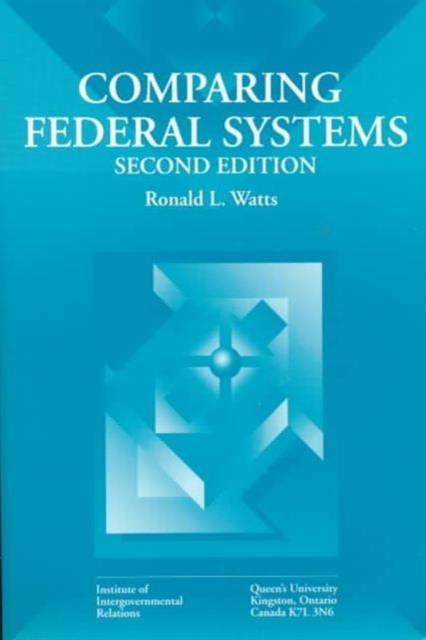
- Afhalen na 1 uur in een winkel met voorraad
- Gratis thuislevering in België vanaf € 30
- Ruim aanbod met 7 miljoen producten
- Afhalen na 1 uur in een winkel met voorraad
- Gratis thuislevering in België vanaf € 30
- Ruim aanbod met 7 miljoen producten
Zoeken
Omschrijving
Countries studied include the United States, Switzerland, Australia, Austria, and Germany as examples of developed industrial societies; India and Malaysia as examples of multilingual and multicultural federations; Belgium and Spain as examples of emerging federal systems that illustrate bicommunal and asymmetrical approaches; and Czechoslovakia and Pakistan as examples of bicommunal federations that have failed. Watts compares the interaction of social diversity and political institutions, distribution of powers and finances, processes contributing to flexibility or rigidity in adjustment, extent of internal symmetry or asymmetry, degree of centralization and decentralization, character of representation in federal institutions, role of constitutions and courts, provisions for constitutional rights and secession, and pathology in federations.
Specificaties
Betrokkenen
- Auteur(s):
- Uitgeverij:
Inhoud
- Aantal bladzijden:
- 130
- Taal:
- Engels
- Reeks:
- Reeksnummer:
- nr. 50
Eigenschappen
- Productcode (EAN):
- 9780889118355
- Verschijningsdatum:
- 1/10/1999
- Uitvoering:
- Paperback
- Formaat:
- Trade paperback (VS)
- Afmetingen:
- 153 mm x 228 mm
- Gewicht:
- 281 g

Alleen bij Standaard Boekhandel
+ 96 punten op je klantenkaart van Standaard Boekhandel
Beoordelingen
We publiceren alleen reviews die voldoen aan de voorwaarden voor reviews. Bekijk onze voorwaarden voor reviews.







